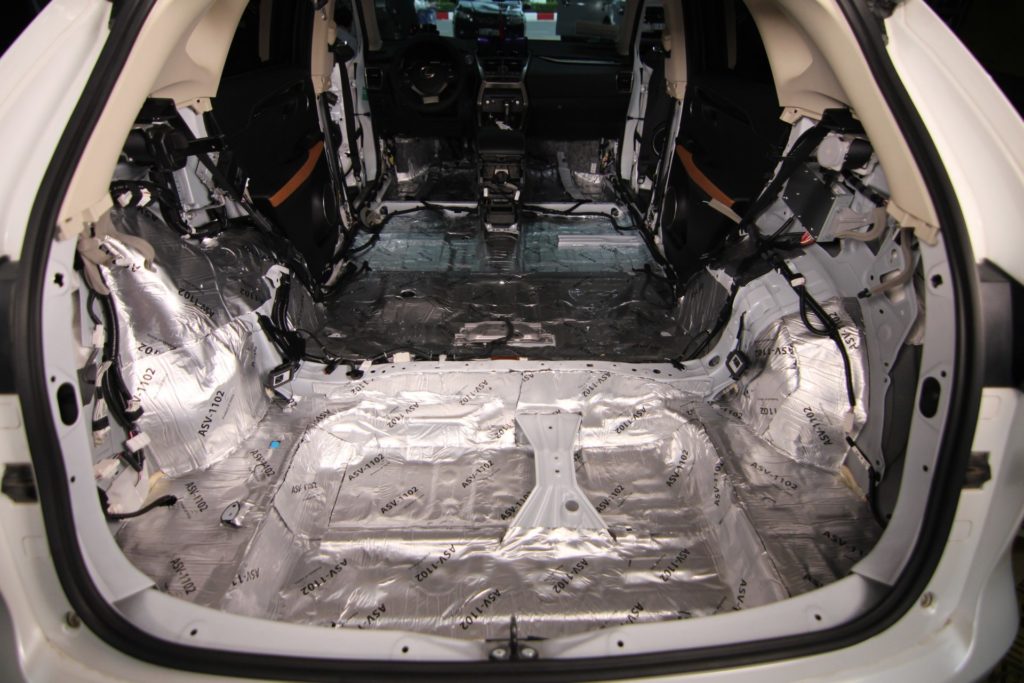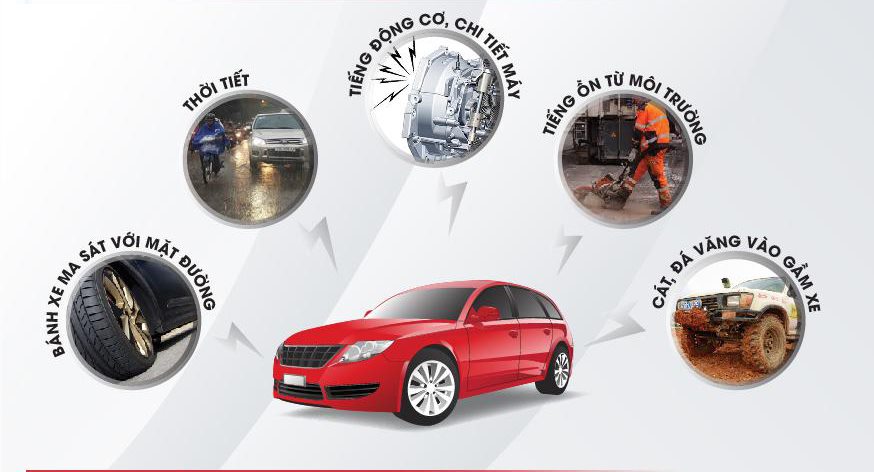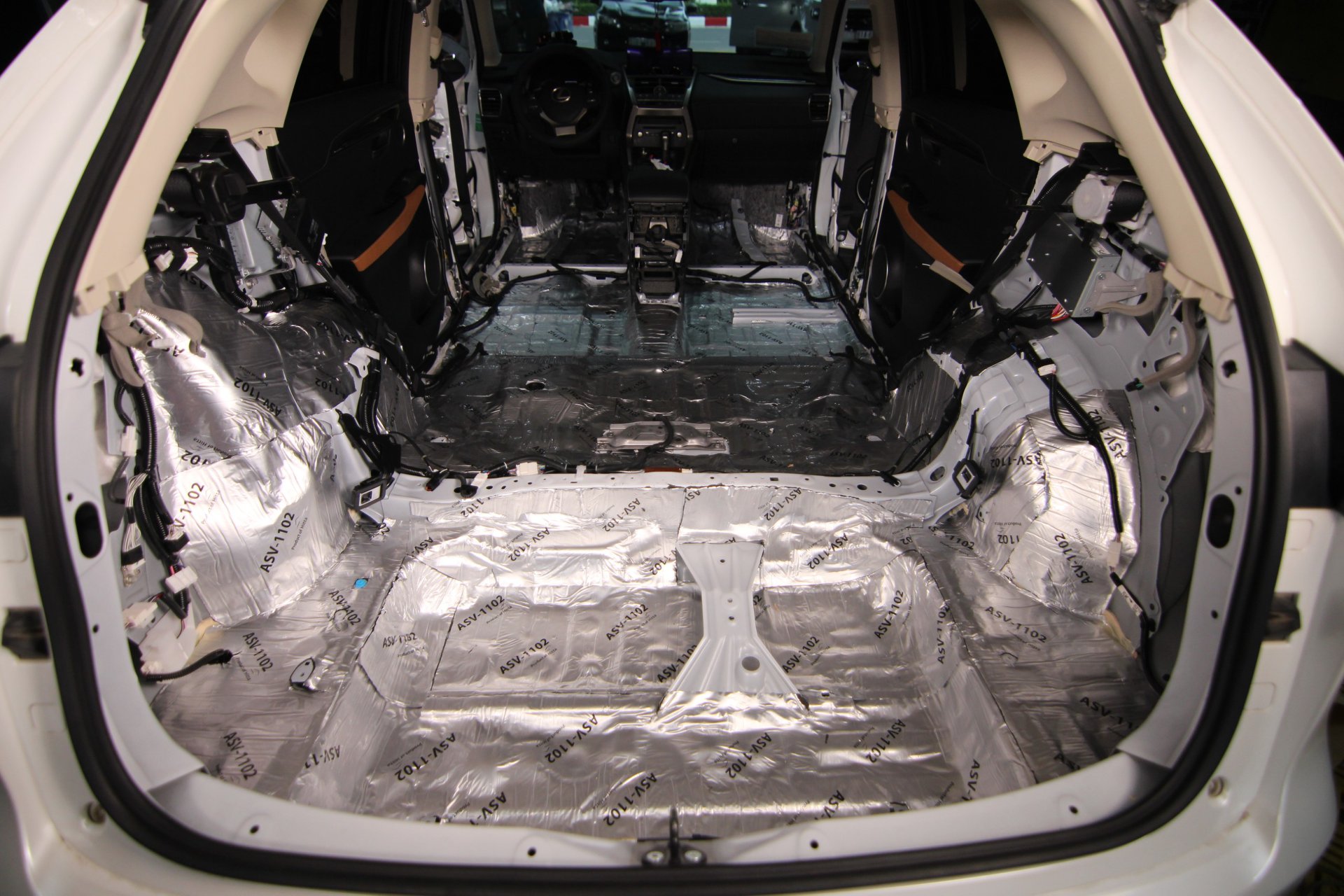Today, many drivers wonder if their cars need soundproofing and whether it is truly effective and necessary. In reality, soundproofing is a very important feature. It not only enhances the comfort of the vehicle’s occupants but also contributes to safer driving.
What Does Car Soundproofing Offer and Solve?
- Safety: While driving, we can be distracted by surrounding noises, such as the roar of the engine when accelerating, road noise, or sounds from other vehicles. Noise from vibrating metal parts like doors and the undercarriage can also be distracting. Soundproofing eliminates these distractions, increasing safety during driving.
- Comfort: Engine noise or the sound of tires rubbing against the road surface can be uncomfortable for those inside the car. For example, people might not be able to relax or have to speak louder to hear each other. Soundproofing addresses this issue, enhancing the comfort of passengers.
- Protection Against Corrosion: Using the right materials that adhere well to metal surfaces can prevent oxygen from reaching the metal, thereby stopping the development of rust and corrosion.
- Thermal Insulation: Soundproofing materials also have thermal insulation properties. This helps keep the car cooler in the current hot weather conditions.
- Audio Enhancement: By reducing noise and hum inside the car, soundproofing allows you to enjoy the pure sound of your favorite music more clearly and loudly, especially enhancing bass sounds.

Types of Noise
All car noises can be categorized into two groups:
- External Noise:
- Noise from nearby vehicles
- Wind noise
- Car horns
- Vehicle-Generated Noise:
- Primary Noise:
- Noise generated by the engine
- Noise from the drivetrain
- Friction noise from the tires against the road surface
- Secondary Noise:
- Noise from doors
- Noise from wheel arches
- Noise from the chassis
- Primary Noise:

Solutions to Address Different Types of Noise
To effectively address the various types of noise, appropriate solutions are required. It is essential to consider the following aspects:
- Identify the Source of Noise: Understanding where the noise originates is crucial for targeted soundproofing.
- Classify the Noise: Differentiate between external noise and vehicle-generated noise to apply specific treatments.
- Strategic Placement of Soundproofing: Determine the optimal locations for applying soundproofing materials to improve noise reduction effectively.
- Select Standard-Compliant Materials: Use soundproofing materials that meet industry standards for quality and effectiveness.
- Follow a Professional Soundproofing Process: Implement a thorough and professional soundproofing procedure to ensure the best results.
By addressing these key points, you can significantly reduce noise levels and enhance the comfort and safety of your vehicle.
Related articles:
Reasons and Characteristics of Soundproofing
When soundproofing a car, the ASV-1102 soundproofing material ensures the effective absorption of any noise or vibrations, whether they come from outside or inside the vehicle. Here are the key benefits of using ASV-1102 soundproofing material:
- Effective Noise and Vibration Absorption: ASV-1102 material efficiently absorbs both external and internal noises, including vibrations, friction, and hums.
- Acoustic Improvement: It enhances the acoustic properties of the vehicle, making the interior quieter and more pleasant.
- Thermal Insulation: ASV-1102 also improves the car’s thermal insulation, helping to maintain a comfortable temperature inside the vehicle.
If you aim to eliminate unwanted noises or vibrations and increase the thermal insulation of your car, fully soundproofing the doors, floor, and wheel arches with ASV-1102 will exceed your expectations.

